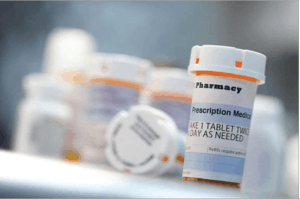
The Centers for Disease Control and Prevention (CDC) wants everyone to know that taking antibiotics when they are unwarranted can be harmful.
Antibiotics are drugs that treat only bacterial infections. Viral illnesses and their symptoms cannot and should not be treated with antibiotics.
Why should you care?
Improper use of antibiotics promotes the spread of antibiotic resistant strains of germs. Resistant germs are stronger, and much more difficult to destroy.
This means that when antibiotics are ultimately needed, it may require more of them, or far more expensive varieties of antibiotics, injections or even hospital-ization in order to combat these resistant strains. These resistant strains are collections of super germs that, formerly, could have readily been handled through conventional antibiotic treatments.
In some cases, antibiotic resistant infections can cause severe illnesses that can no longer be treated with antibiotics.
Antibiotics can also upset the body’s natural balance by killing off the protective (good) bacteria. This results in complications like diarrhea, yeast infections and other dangerous infections.
Question…
Can antibiotics be used in an attempt to knock out a runny nose (yellow and/or green mucus)?
Answer…
No. Here’s why—when colds infect the nose and sinuses, the body produces clear mucus to help to get rid of the germs. When your body sends out an army of biological germ fighters called immune cells to attack the germs in the affected area, the mucus changes to a white or yellow color.
So, if that is the case, then where does the green-colored mucus come from?
When bacteria that typically live in the nose grow back, their arrival is marked by the greenish colored mucus.
Antibiotics will NOT…
- Cure viral illness. Viral illness causes colds, flu, some ear infections and most coughs, bronchitis, sore throats and sinus infections.
- Help you feel better.
- Help you get back to work faster.
- Stop the spread of viral illness.
Author Gregg Cognac, PA-C, Clinical Affairs Director, Medcor is a certified Physician Assistant, and works with Medcor’s medical directors to provide oversight and support for on-site clinic staff in more than 170 locations nationwide. Gregg earned his degree in PA studies from Midwest University in 1999, then completed post-graduate training in Emergency Medicine culminating in a Master’s degree. Gregg’s clinical experienced has been in Emergency Medicine, Occupational Medicine and Cardiology. Gregg contributes to policy and service development, QA, training, and other clinical support for clinic staff operating in a wide range of industries. http://medcor.com. Contact: gregg.cognac@medcor.com























